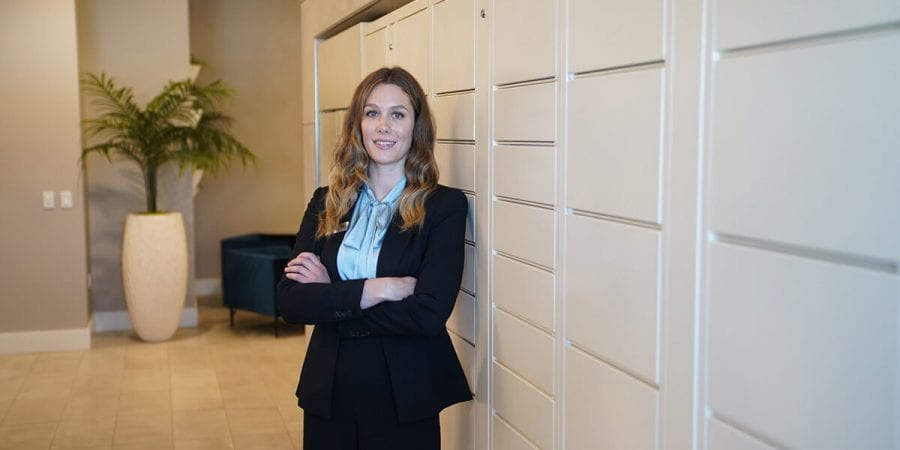
Multifamily
Short-Term Rentals Are Here to Stay
Written by: Parcel Pending
4 Min Read
Published: April 7, 2021
Updated: March 29, 2023
The short-term rental housing market is no longer strictly the domain of business travelers stationed for a few months in a bustling city. In today’s market, it’s vacation travelers and remote workers who are fueling the demand for rental housing, which translates into good news for multifamily management.
Why the Short-Term Rental Market is Growing
The continuing pandemic convinced vacation travelers that booking short-term rentals was generally safer than large-scale hotels. Rental households in beach towns and countryside hamlets, far away from big cities, experienced explosive growth.
According to AirDNA, new bookings in the short-term rental industry increased in January 2021 to their highest level on record, surpassing June 2020 by 22%1. Startlingly enough, roughly 65% of Airbnb rentals are in multifamily buildings2.
A New Industry to Handle the Surge in Short-Term Rental Households
Along with the growth experienced in the rental house market, a new industry has emerged as a type of vacation rental company to handle the marketing, booking, and administrative tasks for vacation travelers. Start-ups such as Sonder, Why Hotel, Stay Alfred, and HomeAway are national platforms that connect vacation travelers with rental properties.
Benefits of Short-Term Leasing
Short-term leasing provides many benefits to property owners. Partnering with a short-term real estate platform can improve your occupancy rate, assist with cash flow, and provide consistent revenue as rental demand rises. The two parties (you and the vacation rental business) usually ink a deal for a specified number of housing units for a guaranteed term length. Short-term renting also allows managers to fill empty units that might otherwise remain vacant, while still allowing managers the flexibility to respond to the changing demand for rental housing. An unexpected side benefit is that brief stays allow vacation renters to use the experience as a trial run and decide if they want to rent for an extended period or convert to a longer-term lease.
More Amenities: The Market for a Place that Feels More Like a Home
Whereas the average hotel room is a microscopic 330 square feet, furnished apartments feel luxurious with stocked kitchens, full baths, in-unit washer/dryers, and cleaning services. Furthermore, vacation renters are seeking experiences similar to home with modern apartment features and amenities such as gyms, concierge services, pools, and club houses – all with safety protocols, of course.
Ensuring that residents packages are stored safely and securely, smart lockers provide peace of mind for travelers staying in these types of luxury apartments. Rather than simply hoping that mail and packages arrive at the right address or that the concierge remembers their name, the resident is automatically notified by email, text, or mobile app alert that a delivery has arrived. The resident is then given a barcode to scan to access their delivery 24/7, contact-free. Package room solutions, like lockers employed in the short-term rental market can also be used to deliver key documents, leases, keys, and fobs.
Targeting Short-Term Rentals to the Remote Worker Market
The pandemic created a seismic shift in the way we work. With almost 70% of full-time workers working from home, marketing to remote workers is a savvy move3. After all, big brand names in the tech field have announced that remote work is here to stay. Salesforce Inc. has said the majority of its employees will remain working remotely at least part-time, as has Microsoft, and Google4.
Secrets to success for targeting remote workers including offering rapid-fire fast Wi-Fi, Zoom-ready backgrounds, outdoor living space, and co-working spaces that meet socially distant guidelines. Bridging work and community is also important, as vacation renters often have limited opportunity to make meaningful connections. Virtual events, from talent shows, to yoga classes, to cooking lessons, work to forge solid human bonds at any rental property. Adding short-term leases for vacation travelers to your multifamily rental property is a solid strategy. Ensuring your property has short term housing supply can help increase net income, reduce your vacancy rate, and improve your cash flow. It might also allow you to fund new amenities for residents that boost the overall rental experience.
Talk to a Parcel Pending customer service representative to see how we can design a smart locker layout that fits your needs.
Sources:
- Rosario, IvyLee. Multi-Housing News. Short Term Rentals Here for the Long-Haul. (2021, April 5). https://www.multihousingnews.com/post/short-term-rentals-here-for-the-long-haul/.
- Tavares, Andrew. KLR. Airbnb Effect: Multifamily Developers Explore New Leasing Strategies. (2019, September 9). https://kahnlitwin.com/blogs/business-blog/airbnb-effect-multifamily-developers-explore-new-leasing-strategies.
- Apollo Technical. Statistics on Remote Workers That Will Surprise You (2021). (2021, January 4). https://www.apollotechnical.com/statistics-on-remote-workers/.
- Bindley, Katherine. The Wall Street Journal. Most Salesforce Employees to Work Remotely at Least Part Time After Pandemic. (2021, February 9). https://www.wsj.com/articles/most-salesforce-employees-to-work-remotely-at-least-part-time-after-pandemic-11612897201.



